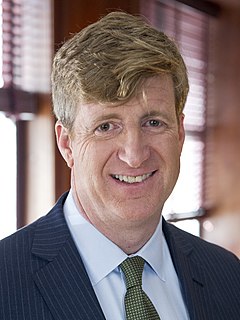A Quote by Stephen Hawking
I believe everyone should have a broad picture of how the universe operates and our place in it. It is a basic human desire. And it also puts our worries in perspective.
Related Quotes
The human mind has a desire to know its place in the universe and the role we play in the tapestry of life. This is actually hardwired into our brains, the desire the know our relationship to the universe. This was good for our evolution, since it enabled us to see our relationship to others and to nature which was good for our survival. And it is also what drives our curiosity to understand the universe.
But that Franklin trip changed me profoundly. As I believe wilderness experience changes everyone. Because it puts us in our place. The human place, which our species inhabited for most of its evolutionary life. That place that shaped our psyches and made us who we are. The place where nature is big and we are small.
I think the problem is these basic sort of human values from our - from the beginning, from birth, are not sort of properly nurtured. So then our mind, our brain, through education and also difference of experiences, that eventually, these basic values or what are called dominant, not have the catching up our intelligence, experience growth, that also should grow. Then our life become more human.
The universe is in the experience. It's not just out there. What's out there, we don't know. But for humans it's an experience just like the universe for a dolphin or an insect with 100 eyes is a different experience. Our universe is a human universe experienced in human consciousness and, unless we understand how consciousness operates, we will never actually be able to participate in the creation of our personal and collective reality.
Wisdom is not just knowing fundamental truths, if these are unconnected with the guidance of life or with a perspective on its meaning. If the deep truths physicists describe about the origin and functioning of the universe have little practical import and do not change our picture of the meaning of the universe and our place within it, then knowing them would not count as wisdom.
It is a human circumstance that when we are born we have not yet come into existence. We are lured into our special human existence by a mothering presence that gratifies our innate urges to be suckled, held, rocked, caressed. But that same gratifying presence puts limits on desire and rations satisfaction. In this sense the mother is also the first lawgiver.
I want to stress again that human rights are not peripheral to the foreign policy of the United States. Our pursuit of human rights is part of a broad effort to use our great power and our tremendous influence in the service of creating a better world, a world in which human beings can live in peace, in freedom, and with their basic needs adequately met.
Most of our difficulties, our hopes, and our worries are empty fantasies. Nothing has ever existed except this moment. That's all there is. That's all we are. Yet most human beings spend 50 to 90 percent or more of their time in their imagination, living in fantasy. We think about what has happened to us, what might have happened, how we feel about it, how we should be different, how others should be different, how it's all a shame, and on and on; it's all fantasy, all imagination. Memory is imagination. Every memory that we stick to devastates our life.
Many successful people have fear, along with doubts and worries. The difference is that those who know how to succeed also know how to take action despite these worries and fears. You too can learn how to master fear, by understanding that fear is in our own minds, and therefore under our own control.
The dialectical or ecological approach asserts that creating the world is involved in our every act. It is impossible for us to operate in our daily lives and not create the world that everyone must live in. What we desire arranges the genetic code in all of our major crops and livestock. We cannot avoid participating in the creation, and it is in agriculture, far and away our largest and most basic artifact, that human culture and the creation totally interpenetrate.
...the basic stuff of the universe, at its core, is looking like a kind of pure energy that is malleable to human intention and expectation in a way that defies our old mechanistic model of the universe--as though our expectation itself causes our energy to flow out into the world and affect other energy systems.




































